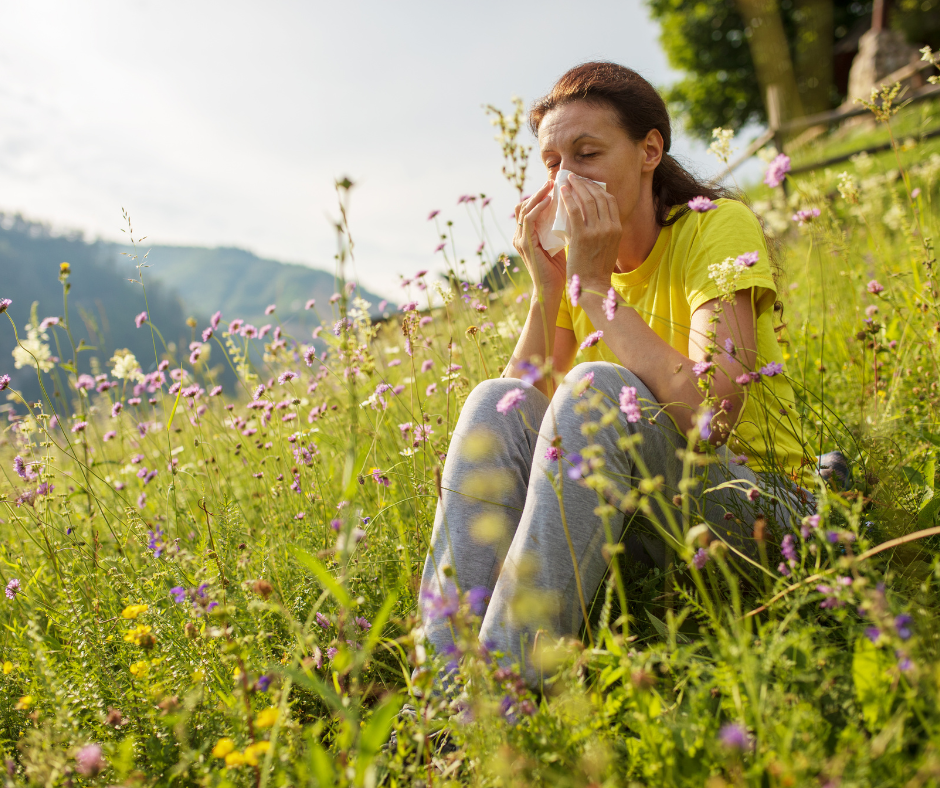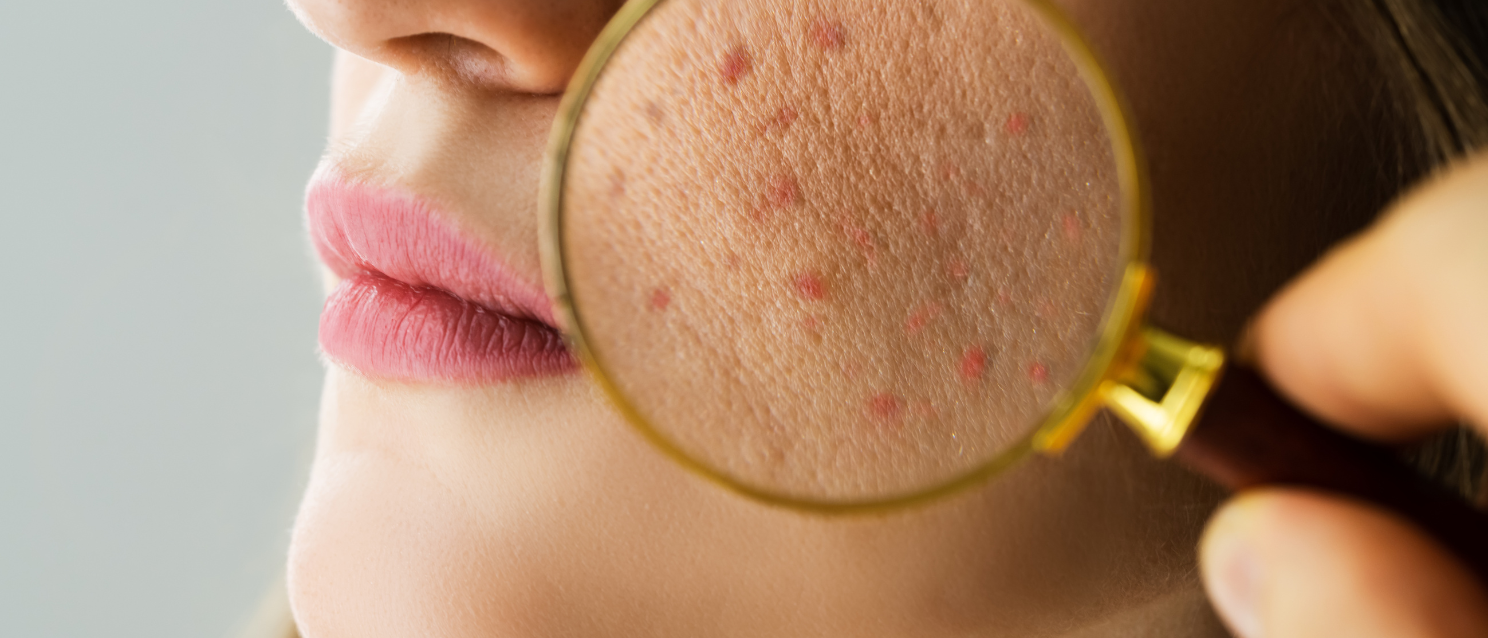Understanding Allergies: Your Guide to Natural Management

Allergies can be a real pain! Whether they’re caused by food, airborne particles, or seasonal changes, we’d all rather avoid them if we can.
September marks the beginning of spring—longer days and improving weather (fingers crossed!). But with Spring we also have the challenge of dealing with allergies!

Natural Ways to Reduce Hayfever
If you’re someone who struggles with hayfever or seasonal allergies, here are a few quick tips to help naturally manage histamine levels and reduce symptoms:
- Stay Hydrated: Drink plenty of water to help your body flush out allergens.
- Quercetin-Rich Foods: Include foods like apples, onions, and broccoli, which are known to have antihistamine properties.
- Local Honey: A spoonful of local honey may help your body build tolerance to local pollen.
- Herbal Teas: Nettle and peppermint teas can act as natural antihistamines.
- Probiotics: Support your gut health, which is closely linked to immune response.
Is it a Cold or Allergies?
Some of the contributing factors for people who develop auto-immune conditions are:
Sometimes, it’s tricky to tell if you’re dealing with a cold or allergies, as symptoms can overlap. However, they do vary in onset, duration, and triggers. Colds often develop gradually and last a few days to a week, whereas allergy symptoms can persist as long as you’re exposed to the allergen.
What Causes Allergies?
Allergies often occur due to a combination of factors, including genetic predisposition, altered immunity, or gut dysfunction. You may be more susceptible to dealing with the symptoms of allergies for one reason or another, and then throw some environmental change in the mix and you’ll get allergic reactions, especially if your immune system is still recovering from the Winter colds and flus. Environmental triggers can include pollen, dust, animal dander, or certain foods or supplements that are high in histamine.

The Role of Histamine
Histamine intolerance is an often-overlooked cause of allergic reactions. Histamine is produced in the body AND - most people don’t realise this - certain foods contain histamines in varying levels. If you want to know which foods contain higher levels of histamine, we have a list available as a free download here.
When we have an overload of histamine, usually because we’re eating too much histamine-containing food or because the body cannot eliminate the excess effectively, it can lead to symptoms like:
- Itchy skin, hives, or eczema
- Sneezing, shortness of breath, swelling
- Headaches, dizziness, rapid heartbeat, asthma
- Itchiness of eyes, nose, or back of the throat
- Gut symptoms like bloating, pain, diarrhoea, or constipation
Histamine is needed for mucous secretion, gastric acid production, and even regulation of your sleep cycle. However, when histamine levels are too high, the body can struggle to cope, leading to various symptoms. Serum histamine can be measured, and adhering to a low histamine diet while managing gastrointestinal inflammation is key.

Managing Allergies Naturally
To manage allergies effectively, it's essential to address diet, nutrient levels, and gut function. Balancing the immune system with a healthy diet, the right probiotic strains, plenty of good quality sleep, and stress management techniques like exercise, breathing exercises, and meditation can make a real difference.
Testing and Treatment Options
If you suspect you have allergies or food intolerances, we can do testing using Quantum Analysis or blood work. The Quantum Analysis process can also detect viruses, parasites, bacteria, and fungi if needed to eliminate or differentiate the triggers specific to you and your symptoms. Treatments will be different for each person, and nearly always I’ll include strategies to improve gut function, which is so important for regulating histamine and assisting in the removal of excess histamine. We’d also make use of herbs and nutrient supplements to relieve symptoms so you’re not having to deal with the intense allergic reactions as we get the histamine levels under control.
It’s worth noting that some common probiotic strains that are widely available in shops - like Lactobacillus Casei and Lactobacillus Bulgaricus - can actually increase histamine levels. Other supplements like fish oils can be used effectively to reduce inflammation but these also can increase histamine, so we need to be mindful of symptoms and how they may increase or not with changes to the diet and use of supplements.
Relief from allergies
Relief and desensitisation through homeopathics can be helpful with allergies to pollens, grasses, moulds, dust, cat fur, and animal dander. If you come in to see me with suspected allergies, we can investigate and do the relevant testing to find out what’s going on for you, and get to the root cause. If it’s not allergies, we would explore other potential causes like pathogens, poor detox or elimination of histamines from the body, high cortisol levels, sensitivities to medications or chemicals in your environment, or how weather changes affect you.
Understanding and managing allergies is essential to improve your overall well-being. If you’re experiencing symptoms and want personalised care, book a consultation with me at PNMC.
GET WELL, BOOK WITH SAM TODAY!
Sam Botica
ND, Dip.Hom, Dip.App.Sc.(Nat), Grad.Dip.Acup, Dip.RM
Sam Botica is a highly experienced Naturopath supporting patients with mental health, stress anxiety and gut issues. With over 20 years of clinical experience, using scientifically proven protocols, natural medicines and a passion for empowering you to heal and feel your best, Sam is a wonderful practitioner who will help you find practical and effective solutions to your health concerns.








